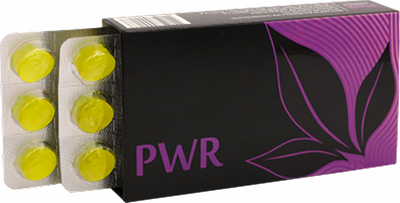
Low libido, or a decreased sex drive, can be a source of concern for many individuals and couples. It's a common issue with a wide range of potential causes, affecting both men and women. Understanding these causes is the first step toward finding effective solutions.
Physical Factors Contributing to Low Libido
Numerous physical conditions can impact libido. These can include chronic illnesses such as diabetes, heart disease, and arthritis, as Twell as hormonal imbalances. For women, changes in estrogen and progesterone levels during menopause or after childbirth can significantly affect desire. In men, low testosterone levels are a frequent contributor. Certain medications, including some antidepressants, blood pressure medications, and hormonal contraceptives, can also have a side effect of reduced libido.
Psychological and Emotional Influences
The mind-body connection is powerful, and psychological factors play a crucial role in sexual desire. Stress, anxiety, and depression are significant inhibitors of libido. Relationship issues, such as conflict, lack of emotional intimacy, or unresolved resentment, can also dampen sexual interest. Past trauma, body image issues, and fatigue can further contribute to a decline in sex drive.
Lifestyle Choices and Libido
Everyday habits can also influence how often you feel like being intimate. Excessive alcohol consumption or drug use can negatively impact sexual function and desire. Poor diet and lack of exercise can contribute to overall health issues that, in turn, affect libido. Insufficient sleep can lead to fatigue and stress, both of which are detrimental to a healthy sex drive.
When to Seek Professional Help
If you are experiencing persistent low libido and it is causing you distress or impacting your relationships, it is advisable to consult a healthcare professional. A doctor can help rule out any underlying medical conditions and discuss potential treatment options. This might include medication adjustments, hormone therapy, or referral to a specialist like a therapist or counselor.
Strategies for Improving Libido
Beyond addressing underlying causes, several lifestyle changes can help boost libido.
- Open Communication: Talking openly with your partner about your feelings and desires is essential.
- Stress Management: Incorporating stress-reducing techniques like meditation, yoga, or deep breathing exercises can be beneficial.
- Healthy Diet and Exercise: A balanced diet and regular physical activity improve overall health, energy levels, and mood, all of which can positively impact libido.
- Prioritizing Sleep: Ensuring you get enough quality sleep can help combat fatigue and reduce stress.
- Exploring Intimacy: Focusing on non-sexual intimacy, such as cuddling, kissing, and shared activities, can help rebuild connection and desire.
- Seeking Therapy: For relationship issues or psychological factors, couples counseling or individual therapy can provide valuable tools and support.
Addressing low libido often requires a multifaceted approach that considers physical, emotional, and lifestyle factors. By understanding the potential causes and exploring various solutions, individuals can work towards restoring a healthy and fulfilling sex drive.
Table of Contents
ADVERTISEMENT

Reignite Your Drive with PWR Lemon
PWR Lemon by APLGO is expertly crafted for men seeking to enhance natural health, vigor, and stamina. Experience a boost in energy and vitality, a more positive mood, and improved physical well-being to support your active lifestyle and a healthy reproductive system. Our unique Acumullit SA® lozenge drops deliver a precision dose of natural, whole-food ingredients like Ginger, Ginkgo, Damiana, Asparagus, Apricot, and Ashwagandha, breaking down quickly to release beneficial nutrients and support your overall health from within.
